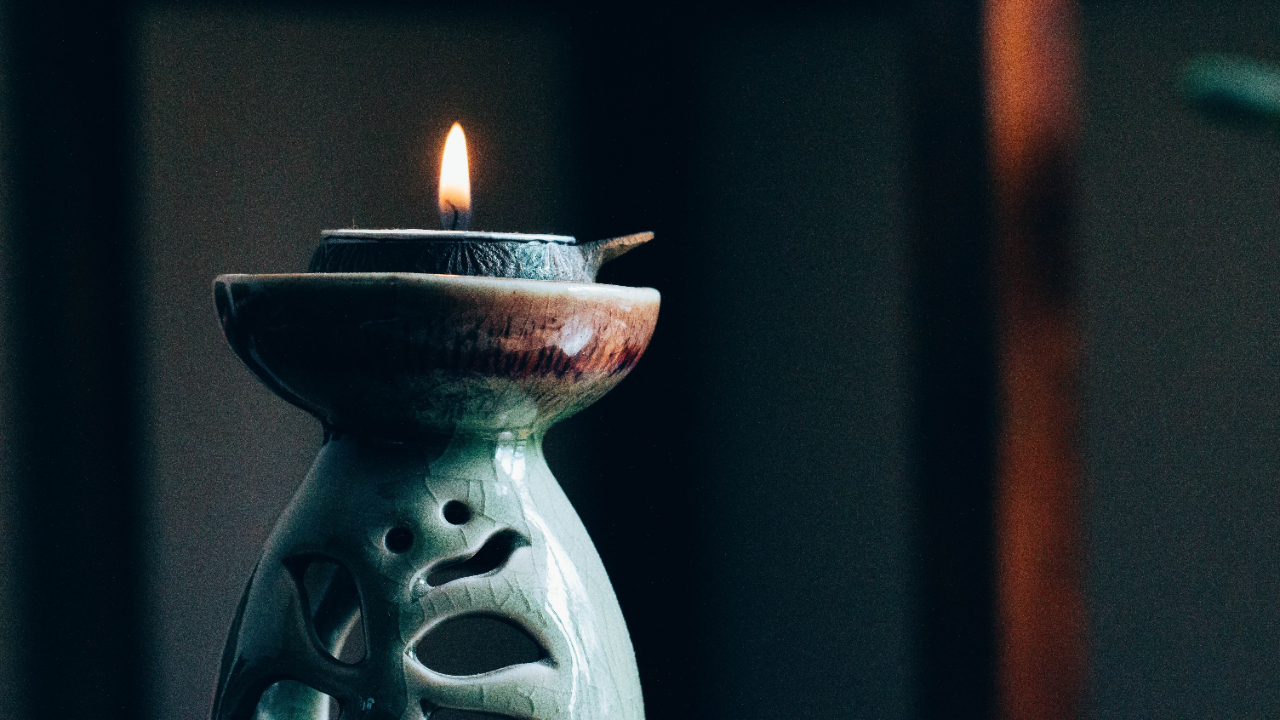How To Use Feng Shui To Avoid Clutter In Your Home
Nov 07, 2023
Today, we're chatting about how to use the principles of feng shui to declutter your home.
I've been helping people create holistic, clutter-free spaces for many years now. A good portion of my content revolves around the psychology of our environments (you can see a good overview of this here), but something that fascinates me almost as much as psychology is cultural-environmental practices.
I especially like seeing the little points where culture and symbolism intersect with science and psychology regarding our environments.
Now, while I'm certainly no feng shui expert, and I'm not going to discuss any design principles in this video, I think there's a lot to gain from learning to tap into your space's energy and lean into your intuition.
I've said before that your environment directly impacts your energy; well, feng shui is just one example of a symbolic framework that represents that.
Feng shui is a Chinese practice that focuses on how your living space affects your energy and life. Everything you place in a room has a specific energy, and its placement in your home can work for or against you.
The term "feng shui" translates to "wind and water," two natural elements that symbolize the flow of energy, or Chi, through the environment in Chinese culture. Feng shui is all about symbolism. The goal of feng shui is to align your surroundings with the natural world to attract positive energy and enhance various aspects of your life, including health, wealth, and relationships.
In feng shui, clutter represents stagnant energy that can hinder the flow of positive energy (or Chi) throughout your home. This stagnation can lead to feelings of being stuck, overwhelmed, and stressed. Clearing clutter allows Chi to move freely, promoting a sense of calm and balance.
Let’s get to the heart of decluttering some of the most important rooms in your home with feng shui.
Start with a Clear Intent
Feng shui is all about purposeful design. It's about intentionally directing positive energy (called Chi) throughout your environment. While we're not diving into design and the use of a Ba Gua map, this clear intent and intentional energy direction are still an inherent aspect of the feng shui practice.
Julie Khuu has a really good series on this where he explains:
"Chi must always have a space to slow down, meander, orbit, and accumulate."
Auspicious energy (lucky energy) moves through your home and meanders around the space. Inauspicious energy (bad chi) moves fast and in a straight line." Good energy allows for space within a space—where the furniture itself has space around it; the decor isn't crammed, and it has space for energy and air to flow.
So, setting clear intentions and maintaining clarity in your living space help to direct and enhance the flow of positive energy (Chi).
Clean Each Room of Your House Thoroughly
One part of decluttering with feng shui that people ignore is cleanliness- a mess is considered clutter. Whether that means you have stains on furniture, dirty handprints from kids on the walls, or dust accumulating on top of a bookshelf, it all needs to be cleaned up.
You cannot correctly implement feng shui in a dirty space. Dust accumulates in areas where energy is not flowing freely. It represents stuck or stagnant Chi, which drains you.
Create Functional Storage Solutions
Make sure that you have a place to put things and that each item has an address (even if they aren't currently in that home). We want to ensure that once you're finished, things will have a designated home.
Now, we're ready to go through and remove clutter, utilizing the principles of feng shui in each room.
1. Clear the Entrance
The entrance is the mouth of Chi, where energy enters your home. Keep this area clear of piles of shoes, dumped coats, and other items that can block the flow of energy.
Entrances to your home that are full of clutter create chaotic energy. Your home’s front door is known as the Chi of your home, and you want that to set the tone for the rest of your home. Creating a positive entrance doesn’t just apply to your front door – but to your mudroom.
- Remove anything you do not need on the porch itself or within view of the external entryway—like old potted plants that you do not take care of or messy trash bins to the side of your house.
- Doorway clutter at the entry, like dumped shoes, catchall dishes, or dumped coats.
- Have a place for easily cluttered items like mail, keys, and purses.
- Take it a step further by using the principles of feng shui when choosing what to leave at your entrance to make your front entryway a statement. Consider adding plants or a water feature to attract positive energy. Keep it clean, well-lit, and inviting.
2. Declutter your kitchen
The kitchen is the gathering place in your home, representing nourishment, prosperity, and family harmony. There, you cook and serve meals, entertain friends and family, and might even help your children with their homework.
Feng shui views your kitchen as the primary health resource – especially liver health.
It's important to keep the area clean to maintain vitality and unobstructed to maintain harmonious energy. Keep fresh fruits, vegetables, and herbs visible to symbolize health and abundance. A bowl of fresh fruit on the counter can attract positive energy.
Some specific ways to declutter your kitchen with feng shui in mind are:
- Remove everything from the refrigerator, toss expired items, clean, and categorize.
- Keep the stove well-cleaned and unobstructed—don't store pans or appliances on it that would prevent you from using all of the burners. In feng shui, the stove represents wealth and abundance, and how you treat this space can influence your financial prosperity. The more stove burners you have, the better because the stove’s burners represent wealth and additional resources. Using all burners equally ensures a balanced energy flow.
- Remove harsh chemical cleansers and poisons from the kitchen to maintain health and vitality.
- Clean out all drawers and appliances in your kitchen, removing broken items and those you do not use. Try to leave space around each zone for chi to flow freely.
- Scrub walls, light fixtures, and surfaces where grease and dust have built up over time.
3. The bedroom
In feng shui, the bedroom is considered the most important room in the house and a cornerstone of the home. Our bedroom is a place of peace, rejuvenation, and safety. You want to remove anything here that does not create a soothing environment where you can rest after a long day.
When it comes to feng shui in your bedroom, less is more. In a Spruce article, certified feng shui consultant Angie Cho says:
"Besides a comfortable bed with feel-good linens, a solid headboard, and a grounding rug, eliminate whatever else you can."
That means no clutter, no electronics, and no wayward socks that didn't make it into your hamper.
Some ways to declutter include:
- Remove anything that obstructs the flow and doesn’t facilitate relaxation, such as exercise equipment, televisions, and anything work-related (I obviously don't live by this rule, but I can understand the value in one space, one purpose- which is something James Clear talks about in the book Atomic Habits)
- Declutter Under the Bed. The space under your bed should be clear and free from clutter. Storing items under the bed can block the flow of Chi (energy) and disrupt your sleep. If you must use this space for storage and you're trying to maintain the chi of your space, limit it to soft, sleep-related items like extra bedding. Avoid storing items related to work, negative emotions (like old love letters), and things that represent movement and restlessness (like shoes or luggage).
- Declutter electronics from the room as much as possible.
- In feng shui, it's a big deal not to have furniture looming over you, like desks or tables. These can give off constrictive energy and cause a feeling of lack of safety while sleeping; they may also block the flow of energy in the room.
- Here's another difficult one: books contain active and intellectual energy, stimulating the mind. If you're not actively reading them, they should be decluttered and moved to other areas of the home or donated.
- Remove clutter from closets. The goal is for closets and drawers to be well-organized and not overfilled. Cluttered storage spaces can lead to stagnant energy, affecting your overall well-being. Regularly go through your clothes and belongings, donating or discarding items you no longer use or need; use organizers and dividers to keep everything in its place, making it easier to maintain order.
The purpose of feng shui is to improve physical and emotional well-being. You want your energy levels to spike at home, and clutter drains energy. For many people,feng shui is a guide for how you can reduce negative energy in every room of your home and make life more efficient overall.
Hopefully, you found this helpful. If you want the checklist version, I've added it to my Free Resource Library! Have a great day.



